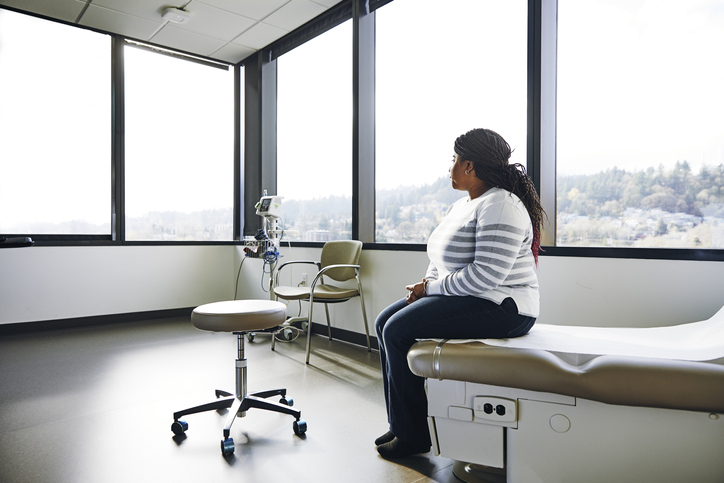
Source: The Good Brigade / Getty
According to a new study, Black women face a 43% higher risk of suffering from a miscarriage than their white counterparts. With some expert insight from Dr. Joia Crear-Perry, Founder and President of The National Birth Equity Collaborative, here’s what you need to know now.
The study was done by UK-based organization Tommy’s — which aims to “fund research into miscarriage, premature birth & stillbirth while providing free pregnancy health information to parents-to-be.” Recently published in The Lancet, it analyzed the data of 4.6 million pregnancies in 7 different countries. Its research estimates that on a global level 23 million miscarriages occur every year, which heartbreakingly equates to around 40 pregnancy losses happening every minute.
Overall, it also noted the following are risk factors to have in mind within regards to why miscarriages might happen:
- Being younger than 20 years and older than 35 years
- Conceiving with men older than 40 years)
- Being very under or overweight
- Previous miscarriages
- Smoking
- Alcohol
- Stress
- Working night shifts or long hours
- Air pollution
- Exposure to pesticides
Concerning Black women in particular, Cosmopolitan UK’s reporting on the new study mentioned that “scientists are now investigating whether other health issues, such as fibroid conditions and autoimmune disorders could help explain [the] increased risk” in our population.
The BBC noted in their coverage that in terms of what can be done to offer support to women who a trying to conceive, the study suggested: “pre-conception support so women are in the best possible condition for pregnancy, regular early scans and support from the start of the pregnancy, pelvic ultrasounds to check the structure of the womb, hormone treatment, aspirin and heparin injections to reduce blood clot risk, progesterone for some of those with bleeding in early pregnancy, and tests and treatment for a weak cervix.”
All things considered, Dr. Crear-Perry told Madame Noire exclusively that being a Black woman isn’t inherently a risk factor for experiencing a miscarriage. According to her, that “narrative” overall doesn’t speak to the racism Black women face at all levels, which she feels is what’s really at the root of the issues they experience concerning their overall wellbeing. Additionally, she noted that the stigmas about miscarriages that relate to Black women, and the fact that pregnancy loss isn’t spoken of too much on a social level, all contribute to how Black women’s overall and maternal health is negatively impacted.
For the specifics on what Dr. Crear-Perry told us, keep read down below.
First, we have to shift the narrative and reject the notion that the Black race is a risk factor for any of the inequities that we see in Black women, including miscarriage. Racism adversely impacts Black women’s maternal health experiences, well-being and pregnancy outcomes. The question really is: What are we doing to address structural, institutional, and interpersonal racism to mitigate its impacts on Black women’s health?
The myths on Black women’s fertility that are rooted in racism continue to impact how Black women experience fertility challenges, miscarriages included. Miscarriage is fairly common — but people don’t know that because we haven’t openly discussed it until fairly recently. Former First Lady, Michelle Obama disclosing fertility issues and sharing her experience suffering a miscarriage not only dismantles the myths about Black women’s fertility and reproduction, but also helps to normalize pregnancy loss. Holistically, actions like that have implications which ensure that people have the support they need following a miscarriage (e.g., paid family leave, access to mental health support).


